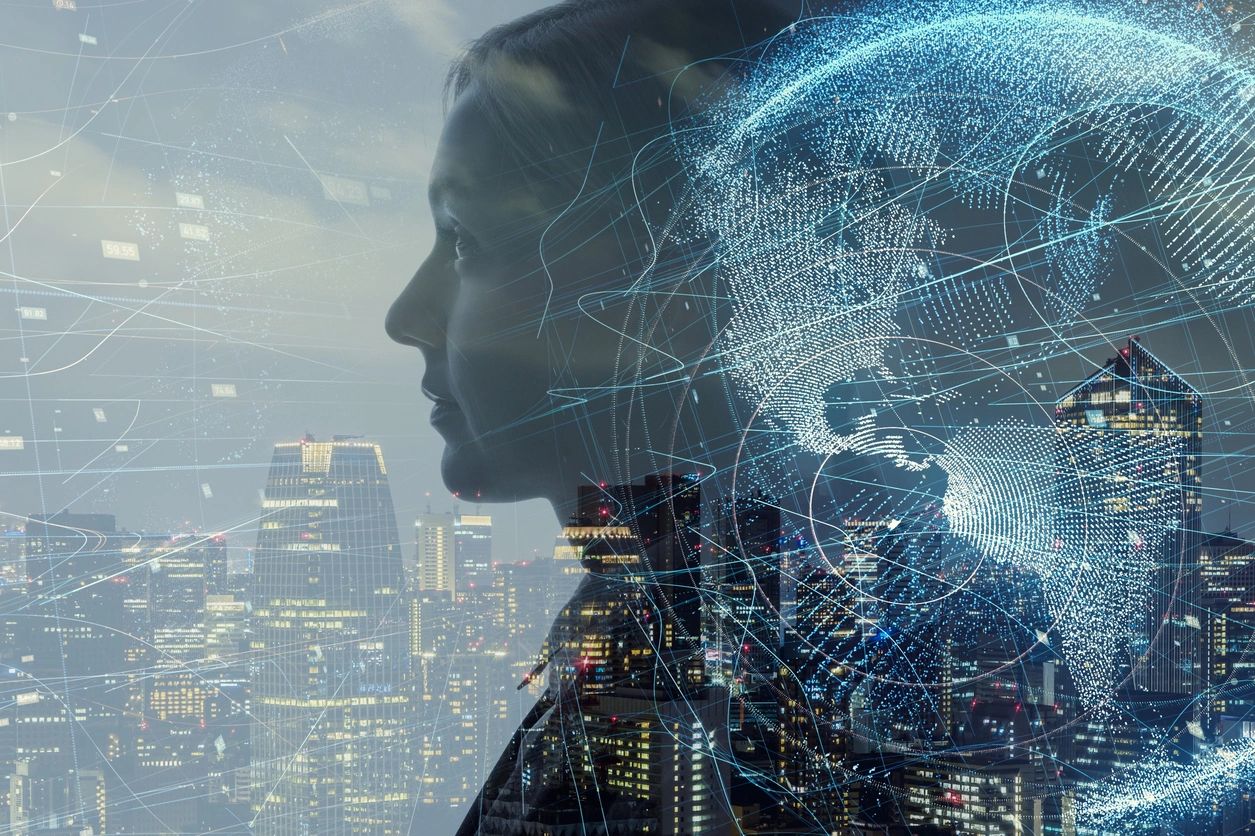The future of trading is being shaped by AI in trading, alongside the transformative potential of machine learning and blockchain technology. These advancements are revolutionizing the way trades are executed, risks are managed, and markets operate. As AI continues to evolve, it is playing an increasingly important role in predictive analytics, automated trading strategies, and optimizing financial decision-making processes.
AI-Based Strategies in Financial Markets: Harnessing AI in Trading
AI has revolutionised trading by providing real-time, data-driven insights and the ability to automate decision-making processes. AI-based strategies are capable of analyzing vast amounts of market data, predicting price movements, and executing trades at speeds that human traders cannot match.
Real-Time Market Analysis with AI: Predictive Trading with AI Algorithms
AI algorithms, particularly machine learning models, have been widely adopted by hedge funds and institutional traders. For example, Renaissance Technologies, one of the most successful quantitative hedge funds, uses AI to identify hidden patterns in market data. Their Medallion Fund has delivered returns of over 35% annually, largely due to its AI-driven strategies.
AI for High-Frequency Trading (HFT)
High-frequency trading (HFT) relies heavily on AI and machine learning. These strategies use algorithms to execute a large number of orders in fractions of a second, capitalizing on minute price movements. Firms like Citadel Securities and Jump Trading have successfully deployed HFT strategies powered by machine learning, dominating the equity and futures markets.
Machine Learning: Enhancing Trade Prediction Models with AI
Machine learning, a subset of AI, enhances predictive models by learning from past data and adapting over time. It’s particularly useful in areas like price prediction, risk management, and sentiment analysis.
Predictive Analytics in Trading
Machine learning models can process historical price data, economic indicators, and even social media sentiment to predict market trends. For instance, models trained on vast data sets of stock prices and economic news can forecast price movements with remarkable accuracy. This method has been particularly effective in forex and commodities markets.
Case Study: ML in Crypto Trading
Machine learning is also being used extensively in cryptocurrency trading. Companies like Numerai are using machine learning to create predictive models that can forecast market movements in the cryptocurrency space. Numerai rewards data scientists for submitting predictive models, demonstrating the power of collaborative machine learning in real-world financial markets.
Blockchain in Trading: Revolutionizing Financial Systems with Blockchain Technology
Blockchain technology offers a decentralized and transparent ledger system, enabling secure transactions without the need for intermediaries. This has profound implications for financial markets, particularly in areas like clearing and settlement, asset tokenization, and smart contracts.
Blockchain in Clearing and Settlement
Traditionally, clearing and settlement in financial markets can take days, leading to delays in finalizing trades. Blockchain, with its real-time settlement capabilities, has the potential to significantly reduce this time. For instance, the Australian Securities Exchange (ASX) is exploring the use of blockchain for its clearing and settlement systems to improve efficiency and transparency.
Smart Contracts: Automating Trades
Smart contracts are self-executing contracts with the terms of the agreement directly written into code. In trading, they can be used to automatically execute trades once certain conditions are met. This automation reduces the need for intermediaries and decreases the risk of errors. Platforms like Ethereum have popularized smart contracts in the crypto world, and their potential in traditional finance is immense.
The Synergy Between AI, Machine Learning, and Blockchain in Trading
When combined, AI, machine learning, and blockchain can provide a comprehensive framework for the next generation of trading strategies. AI and ML can enhance the predictive power of blockchain-based platforms, making real-time trading decisions faster and more accurate. This synergy is already being explored by companies such as IBM, which is working on AI-powered blockchain solutions for financial institutions.
Case Study: AI-Blockchain Integration in Finance
In 2020, a consortium of banks including Barclays, BNP Paribas, and HSBC used blockchain technology to settle trades in a matter of hours, rather than days. The system integrated machine learning models to automatically assess risk and compliance, ensuring faster and more secure trade settlements.
Risks and Challenges of AI, ML, and Blockchain in Trading
Despite their potential, these technologies come with challenges. AI and machine learning models are often seen as “black boxes,” making it difficult for traders to understand how decisions are made. Additionally, blockchain technology faces scalability issues, particularly with high transaction volumes. Regulators are also cautious about the impact of AI and blockchain on market stability, which could slow down adoption.
Ethical Concerns and Market Manipulation
AI-powered trading algorithms can sometimes be vulnerable to manipulation, particularly in high-frequency trading. There are concerns about the fairness of markets when AI systems can outpace human traders. As blockchain and AI continue to evolve, regulatory bodies will need to address these ethical concerns to ensure that the market remains fair and transparent.
Final Thoughts
The future of trading is undoubtedly intertwined with AI, machine learning, and blockchain technology. These innovations are reshaping how trades are executed, how risks are managed, and how markets operate. While challenges remain, especially regarding transparency and regulation, the potential for these technologies to revolutionize financial markets is immense. Advanced traders who embrace these technologies will likely find themselves at the forefront of a new era of trading, where speed, precision, and automation are key to success.
